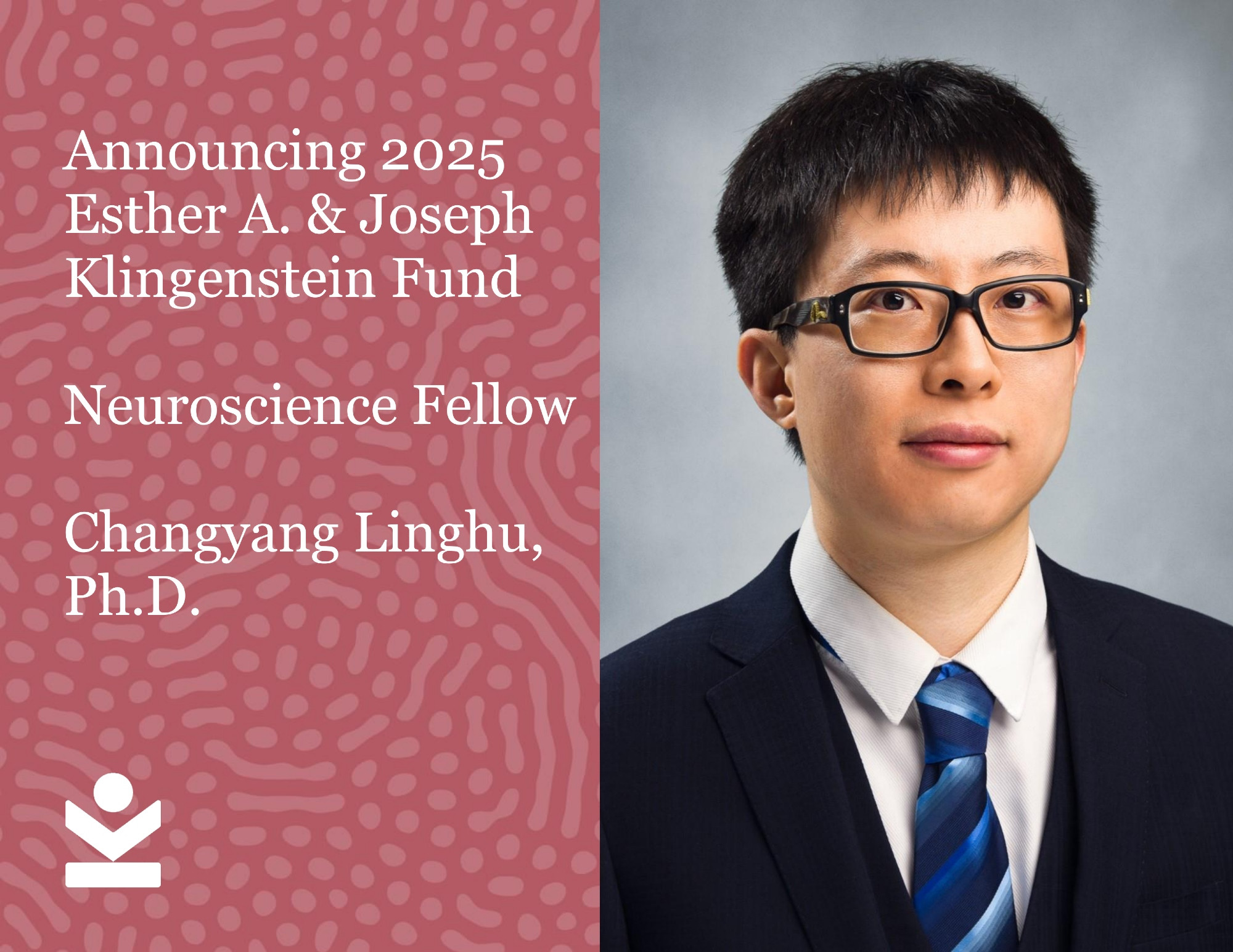
Michigan Neuroscientist Changyang Linghu Awarded Klingenstein Fellowship
The Klingenstein Fellowship Awards in Neuroscience were established in 1981 by the Esther A. & Joseph Klingenstein Fund to advance research on neurological disorders.

The Klingenstein Fellowship Awards in Neuroscience were established in 1981 by the Esther A. & Joseph Klingenstein Fund to advance research on neurological disorders.
Changyang Linghu, Ph.D., Assistant Professor Cell and Developmental Biology (CDB) and Biomedical Engineering (BME) and a principal investigator in the Michigan Neuroscience
Institute (MNI) at the University of Michigan, has been awarded a Klingenstein Fellowship
Award in Neuroscience to study memory codes in the brain via a novel understanding-by-
predicting approach.
“I am truly honored to receive this fellowship,” Linghu said. “It will allow our team to pursue bold, new methods for mapping how memories are stored at the cellular level. By predicting gene activation across cell populations, we hope to uncover fundamental principles of how the brain encodes memories.”
Memory formation in the brain involves coordinated gene expression activities across networks of brain cells. With the Klingenstein support, Linghu’s research will investigate and decode how memory emerges from such activities across cells during learning and memory tasks using advanced imaging and machine learning tools. “We aspire to actively collaborate with colleagues at CDB, BME, MNI, and beyond, to bridge between neuroscience questions and technology development efforts,” he added.
Dr. Linghu is one of 13 early-career scientists nationwide to earn a Klingenstein Fellowship this year. The award provides three years of research funding (total $450,000) to pursue innovative projects. Funded by the Esther A. & Joseph Klingenstein Fund, this fellowship is designed to support high-risk, high-reward neuroscience research by highly promising, early career investigators. Dr. Linghu has led the Spatial Biodynamics Lab at the University of Michigan since 2023, where he and his team develop and apply novel technologies for brain research. Before joining the U-M faculty, he completed his PhD and postdoctoral training at MIT, where he worked on scalable (Nature Biotechnology, 2023), multiplexable (Cell, 2020), and high-resolution (Neuron, 2020) tools for measuring cellular activities in a spatiotemporally resolved manner. He is also the recipient of the NIH Director’s New Innovator Award and MIT Technology Review’s Global 35 Innovators Under 35, among other recognitions.
About the Klingenstein Fellowship in Neuroscience
The Klingenstein Fellowship Awards in Neuroscience were established in 1981 by the Esther A. & Joseph Klingenstein Fund to advance research on neurological disorders. Originally focused on epilepsy, the program has since broadened to support basic and clinical neuroscience work of all kinds. Today it is considered one of the nation’s oldest and most prestigious fellowships for early-career neuroscientists. The program seeks to seed new directions in a fellow’s research by providing flexible funding – currently $150,000 per year for three years (total $450,000).
Klingenstein fellows also join an active research community: the fellowship includes annual meetings, creating what organizers call a “life-long network of colleagues, mentors, and friends.” Each year, roughly a dozen scientists are selected as Klingenstein Fellows. The program’s generous support helps launch the careers of these talented researchers at a critical juncture. By providing funding and a peer network early in their careers, the Klingenstein Fellowships have a remarkable track record of accelerating innovative neuroscience discoveries.